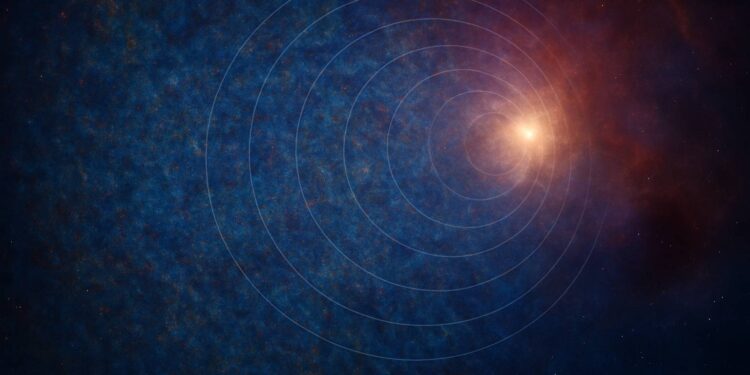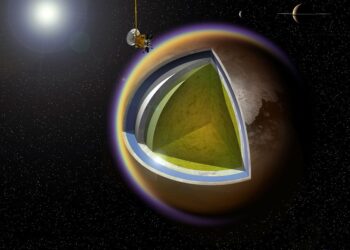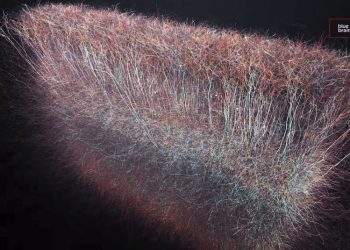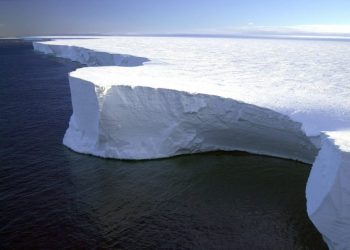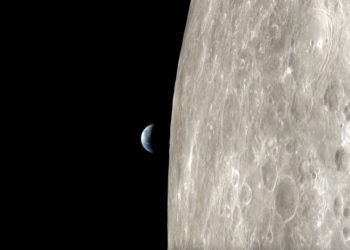According to Sir Roger Penrose, one of the world’s most renowned theoretical physicists, the answer may be yes — and the signs of that previous universe could still be visible today. Penrose, a professor at the University of Oxford and former collaborator of the late Stephen Hawking, believes our cosmos is merely the latest in a series of universes, each one giving rise to the next in a process that challenges standard Big Bang theory.
He claims that telltale evidence of a universe before ours may be etched into the very fabric of space.
A Universe Before the Big Bang?
The idea that something existed before the Big Bang has long occupied a strange space in cosmology — somewhere between physics and philosophy. Traditional models suggest the universe began 13.8 billion years ago, with space, time, and matter springing from a singularity. According to this view, the cosmos inflated rapidly, cooled, and began to form stars and galaxies.
But Penrose offers a radically different model: conformal cyclic cosmology.
In this framework, the universe never truly begins or ends. Instead, each universe — or “aeon,” as Penrose calls it — expands until it reaches a state of near-emptiness. Then, over trillions of years, as all matter and black holes decay, the universe becomes uniform once again, setting the stage for a new Big Bang and a new cosmic cycle.
“Our universe is just one in a potentially infinite series,” Penrose has said. “And each leaves behind traces that may survive into the next.”
The Case for Cosmic Memory: Radiation as a Clue
The foundation of Penrose’s theory lies in patterns hidden within the cosmic microwave background (CMB) — the faint radiation left over from the Big Bang.
Discovered in the 1960s, the CMB permeates all of space and is considered one of the strongest pieces of evidence supporting the Big Bang. But while it’s widely seen as uniformly distributed, subtle irregularities have been detected — temperature fluctuations and patterns that some astronomers attribute to quantum turbulence during the universe’s infancy.
Penrose sees it differently.
Together with researchers from the US and Poland, he has examined these anomalies and proposed that they may be echoes from the previous universe. Specifically, he points to circular imprints in the microwave background that could be the result of supermassive black holes from an earlier aeon evaporating through what is known as Hawking radiation — a theoretical form of energy release proposed by Stephen Hawking.
In Penrose’s model, these enormous black holes slowly consumed matter during the final stages of the previous universe. Then, at the end of time, they evaporated in bursts of energy. It is this radiation, he believes, that may have left subtle signatures in our current universe — like ripples in a pond carried over from one splash to the next.
A Bold Claim in a Divided Field
Penrose’s theory is not without its critics. The majority of cosmologists still favor the inflation model, which proposes that the universe underwent an exponential expansion a fraction of a second after the Big Bang. That theory elegantly explains the large-scale structure of the cosmos — the distribution of galaxies, clusters, and voids — as well as the observed uniformity of the CMB.
But inflation also faces unresolved questions. What triggered it? Why did it stop? And why hasn’t direct evidence of the mechanism been found?
That’s where theories like Penrose’s gain traction. They offer alternative explanations that don’t rely on speculative fields or undiscovered particles. Instead, Penrose starts from known physical processes — entropy, black hole thermodynamics, and general relativity — to suggest a universe with no beginning and no end, only transformation.
While mainstream physicists remain cautious, Penrose’s ideas have received increasing attention. In 2020, he was awarded the Nobel Prize in Physics (shared with Reinhard Genzel and Andrea Ghez) for his work on black holes — adding further weight to his reputation as a thinker unafraid to challenge consensus.
A peer-reviewed paper co-authored by Penrose on this subject has been published, detailing the mathematical framework and the CMB data his team analyzed. The evidence remains circumstantial, but the implications are profound.
What If He’s Right?
If future research validates Penrose’s claims, it would mean our universe is not unique, nor is it the first. Instead, each cosmos would pass the torch to the next, in a chain stretching beyond our imagination.
It wouldn’t just change how we think about time and space. It would change how we understand ourselves — as inhabitants of a universe that inherited the remnants of something far older, shaped not just by its own Big Bang, but by cosmic events from a universe long gone.
Whether or not his theory is ultimately accepted, Penrose has done what the best scientists always do, and what I believe defines a great scientific speaker: he’s opened the door to a bigger question — and dared us to look through.



